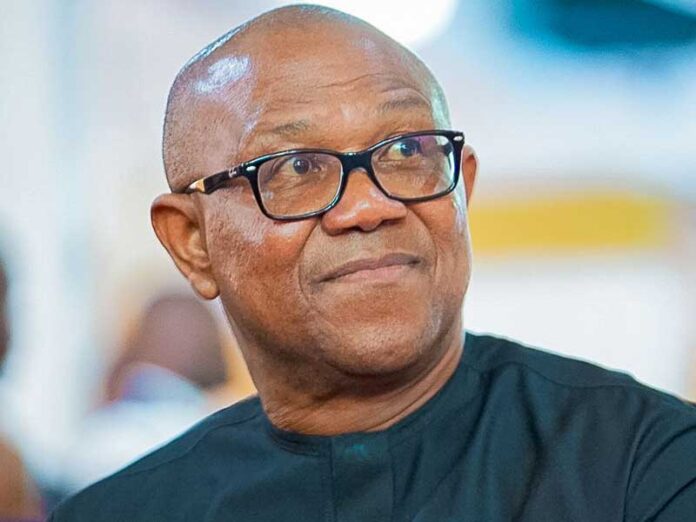Former Labour Party presidential candidate Peter Obi has delivered a scathing assessment of Nigeria’s state of affairs as the nation marked its 65th Independence Anniversary, accusing successive leaders of betraying the aspirations of its founding fathers and pushing the country into deeper socio-economic distress. In a nationwide broadcast on Wednesday, Obi described Nigeria’s journey since independence as one marked by unfulfilled promises, policy failures, and an alarming decline in living conditions.
He recalled the optimism of 1960 when Nigeria gained independence with the confidence of becoming Africa’s leading power, a nation Time Magazine once projected would rise as a continental superpower. Obi lamented that such lofty expectations had been dashed by decades of poor governance, leaving millions of citizens impoverished while a select few continue to enrich themselves. According to him, the return of democracy in 1999 offered a glimmer of hope, but much of that progress has since been squandered.
Obi placed much of the blame on the All Progressives Congress, arguing that the party’s near-decade rule has left the economy battered and millions trapped in hardship. He pointed to Nigeria’s rising debt profile as a symbol of reckless management. In his words, “By the end of 2007, our total debt was about ₦2.5 trillion, only 10 percent of GDP, after the Obasanjo administration secured debt forgiveness of over $30 billion. By 2014, Nigeria had become Africa’s largest economy, with the prospect of achieving middle-income status. In 2015, history was made when the ruling party lost power at the ballot. Yet today, our debt has ballooned to ₦175 trillion—nearly 50 percent of GDP—with no visible progress in our productive sectors.”
The former governor of Anambra State expressed dismay that Nigeria, once an economic leader, has now fallen behind South Africa, Egypt, and Algeria. He further noted that democracy itself has come under question, with international observers branding it as undemocratic. Obi accused the present administration of worsening the plight of citizens through what he termed reckless borrowing, misplaced spending priorities, oppressive taxation, and unchecked official extravagance.
He painted a grim picture of daily realities for millions of Nigerians, noting that in just one year of the APC government, over 15 million people have been pushed into extreme poverty, while more than 150 million lack access to basic healthcare, clean water, education, and sanitation. He argued that such figures reflect a government more focused on squeezing citizens for revenue than addressing their suffering.
Obi also criticised President Bola Tinubu’s policies, stressing that new tax regimes and unchecked insecurity have created widespread hardship while eroding public trust in governance. He accused the administration of placing personal and political interests above national priorities.
Despite his sharp criticisms, Obi insisted that Nigeria still possesses the potential to reclaim its place as a global player. He stressed that the turnaround will only be possible with competent, compassionate, and disciplined leadership. He called for a renewed national focus on prudent economic management, investment in education and healthcare, infrastructure development, and a return to the rule of law. According to him, Nigeria has the resources and capacity to drastically reduce poverty if managed properly.
Drawing examples from China, India, Indonesia, and Bangladesh, Obi argued that nations that once struggled with widespread poverty managed to transform through disciplined governance and people-centred policies. He maintained that Nigeria’s case is no different, provided leaders abandon incompetence and fiscal irresponsibility.
He concluded his broadcast with a reminder that the nation’s founding fathers envisioned a prosperous and united Nigeria, and it is this vision that must guide future leadership if the country is to avoid slipping further into decline.
The broadcast, filled with both criticism and cautious optimism, underscored Obi’s continued role as one of the strongest voices in Nigeria’s political landscape. His remarks not only reignited debates about leadership accountability but also set the stage for growing calls for reform as the nation reflects on its 65-year journey since independence.

